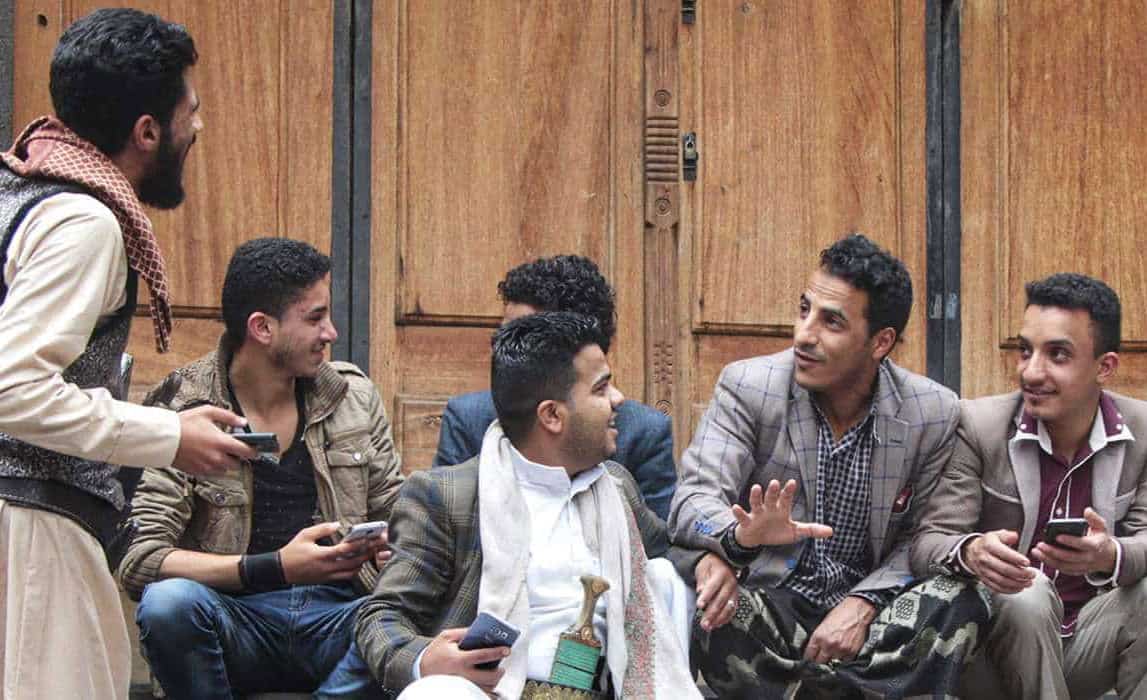Networks of Change
RNTC and SPARK will partner on “Networks for Change” a 3 year programme
RNTC and SPARK will partner on “Networks for Change” a 3 year programme funded by the Ministry of Foreign Affairs of the Netherland’s Communications Hub. The project will be launched in the Kurdistan region of Iraq in 2019.
Building resilient networks
Networks of Change: Combating youth radicalisation through positive community-based and digital approaches in the KR-I (2019-2022), is built on the basis of our past two Countering Violent Extremism (CVE) pilot programmes: Boosting Your Beliefs (BYB) and Deradicalisation Training Teachers (DTT). These were conducted between October 2017 and March 2019 in the Kurdistan Region of Iraq (KR-I). Our aim with the Networks of Change programme is to cohesively train multiple levels of society surrounding - and including - young people in order to empower and engage youth. Also, to deflect and counter the appeal of radicalism and violent extremism through counter- and anti-radicalisation strategies, capacity building, leadership and entrepreneurship development.


Erbil, Halabja, and Sulaymaniyah
Alongside CVE campaigning, socio-political dialogue and public awareness creation; SPARK will implement this programme in the 3 regions of Erbil, Halabja, and Sulaymaniyah, through strengthening and building the capacity of youth centres in each city, as well as with local universities, secondary schools, and communities to provide a scalable holistic CVE programme.
Empowering young Kurdish women and men
Through empowering young Kurdish women and men as leaders and innovators, training 180 teachers, 30 social workers, and 996 parents in identification and mitigation skills regarding early radicalisation, and opening dialogues through on- and offline activities of the Youth Digital Workforce teams, SPARK will provide new pathways to success for young people in the KR-I, preventing them from turning to radicalisation as a last resort, or out of economic despondence.

Campaigns for social change
Our online campaigns, internally organised by our Youth Digital Workforce teams of 60 active youth campaigners (30 in Erbil, 30 regionally), will seek to reach 150,000 unique users across the KR-I with public awareness campaigns (including 6 animations), as well as by holding 34 offline dialogue events to discuss youth issues around unemployment, participation and radicalisation. By doing so we also aim to boost these issues on political and public agendas as we engage with government ministries, major influencers, and representatives from the private sector throughout the KR-I in the form of dialogues, advisory and working groups, and events. Eventually, we want to successfully advocate to high levels of the Kurdish government for a national P/CVE strategy.
Using on- and offline campaigns, the programme will empower our partners and youth beneficiaries with platforms that encourage dialogue, youth participation and non-violent political and social change. These same youth beneficiaries will be further responsible for developing politically empowering public awareness through peer-group dialogue sessions and public conferences that engage local youth, universities, the general public and policy makers.
Through this scalable, multilevel model, SPARK continues to rebuild the bonds of trust and reliance between Kurdish youth and educators, families, politicians, and the general public, lessening the feelings of isolation, relative deprivation and unfulfilled potential that so often drive young people to (violent) extreme alternatives.
Building youth capacity
This programme aims to build the capacity of 30 selected young people in campaigning, leadership, and entrepreneurship. Through a highly competitive selection process, SPARK will select 30 recruits and subsequently train the candidates to participate in SPARK’s Youth Digital Workforce.
They will learn how to recognise radicalisation processes and campaign tactics and how to avoid being swayed by negative or radical messaging, and at the same time how to offer or find alternative opportunities to engage in positive activism and economic, social, and political life. Once participants have completed the full training programme, they will have the capacity to design and run public awareness campaigns, become leaders in their communities, start their own projects, find employment, or even embark on entrepreneurial aspirations. These trainings take a practical approach; they are participatory, utilising role play and emphasising interaction.
RNTC is responsible for laying the foundations for the Youth Digital Workforce and the programme as a whole, developing participant capacities in mapping target audiences, setting goals, persuasive storytelling, using creative formats, and online campaigning. In particular, this training course examines persuasion, and how persuasion is a necessary component of behavioural change campaigns. In other words: the course explores how to use communication in order to exploit gaps in understanding and challenge the logic of a specific audience.
In addition, participants will be introduced to processes and mechanisms utilised in radicalisation. This portion of the course will use real world examples, including testimonies from former radicals (tailored to the region) and case studies, in order to analyse dominant themes and ideas in radical messaging as well as how radical groups target their audiences, the platforms they use, and which strategies they employ. A session on the risks of participating in such CVE activities and conflict sensitivity is also included.
This training will be the first in a series focused on developing a wide variety of online and offline campaign skills and strategies, organised by RNTC and SPARK. This series includes a follow-up advanced course (RNTC), a social media training (SPARK), an event organisation training (SPARK), and a Drama Writing class (RNTC). In between these trainings RNTC delivers online coaching on specific needs. We tried this already during the BYB programme and this proved to be very appreciated and successful.
Matters of security are included in these trainings. In particular during the introduction course by RNTC the participants will be introduced to digital safety, security measures and resiliency. This means that the participants will be shown what the risks are in this line of work and how they can protect themselves and their colleagues better online.